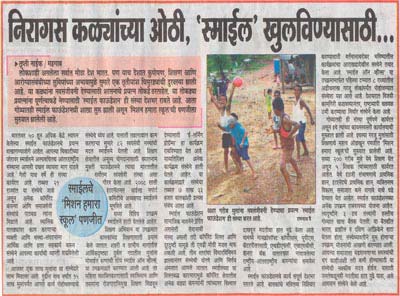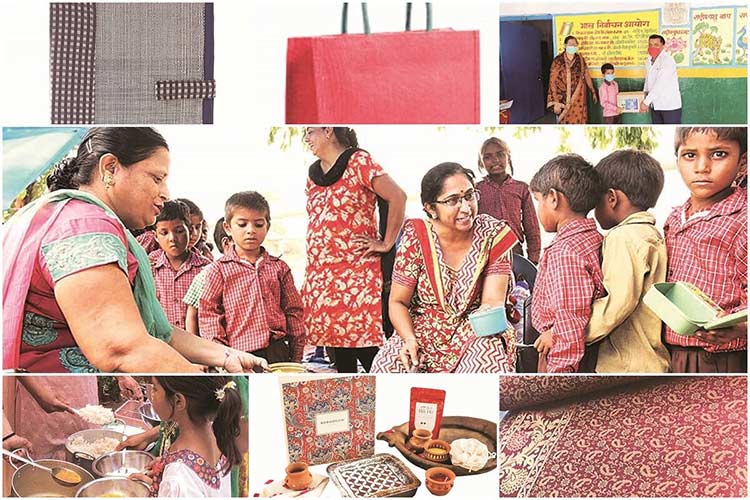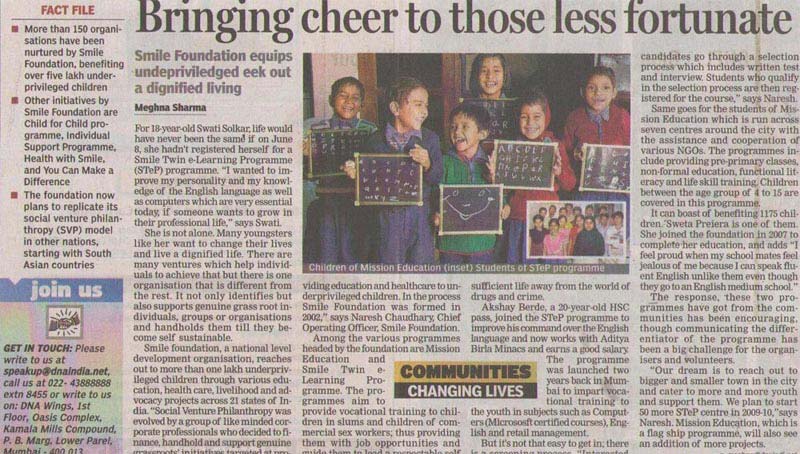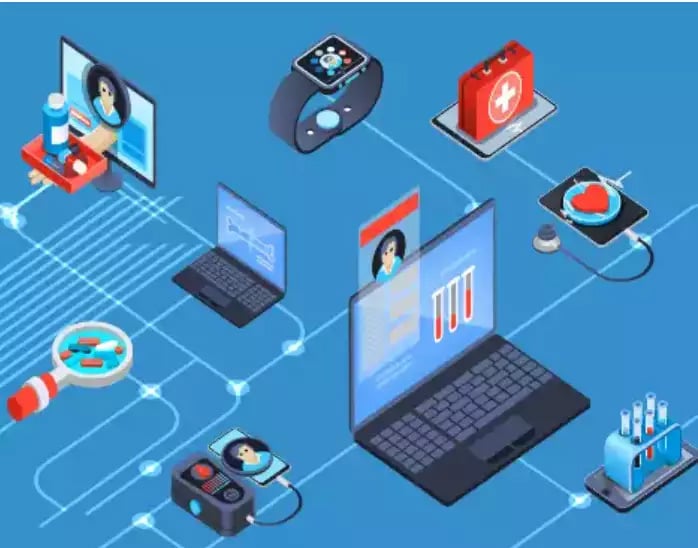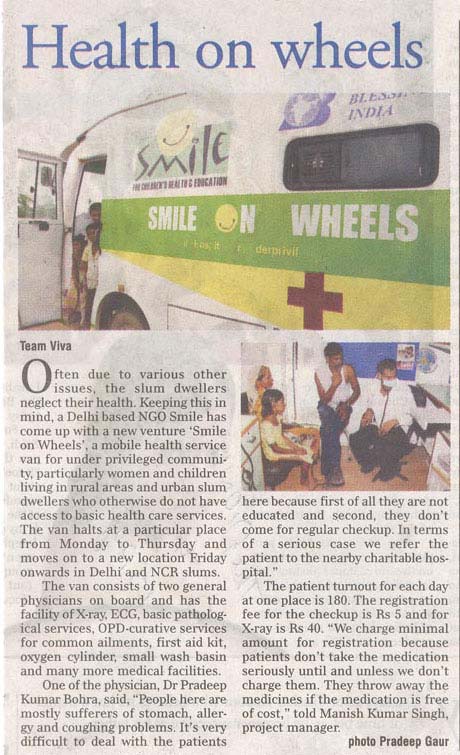Author: Smile Team
Diwali celebration 2020: A gift for the needy & by the needy
- Home
- Smile Team
- Page 155
( November 8, 2020 )
The diyas in the hamper—which contains cookies box, pie box, special Bordough Bakery blend of coffee and other customisable options—are made by members of The Blind Relief Association in Delhi.
We have drawn a curated list of places and groups you can buy from or donate to help the needy.
Diwali this year is different. It is about being mindful of the people in need. It is about responsible gifting & conscious giving. We have drawn a curated list of places and groups you can buy from or donate to help the needy.
Floating wishes
Delhi-based NGO Wishes and Blessings sells floating candles and diyas, made by special children, priced between Rs 10 and Rs 200. The proceeds support the well-being of the special children. Contact 9625535026 or email [email protected]
Light it up
What’s the festival of lights without lights? From pyramid, cube, pillar, glass wax, flower and Dhanteras candles to little light balls and diyas, Agra-based NGO Ek Pahel, which works to uplift underprivileged children and women, offers all these and more. Made by underprivileged girls studying at Ek Pahel Pathshala, the products are priced between Rs 30 and Rs 200. Around 60% of profit goes to the organisation and the rest to the girls. Contact 7500176976, 8126906681 or visit www.facebook.com/ EKPAHELNGO/
Sustainable handicrafts
Handbags, table runners, stoles, mats, bedcovers— made by destitute women, including widows and sex workers, and physically challenged and autistic men—are sold by Varanasi-based Fix My Life Foundation. The products are priced between Rs 300 (handbags and stoles) and `1,800 (set of bedcover and pillow covers). Contact 9415204182 or mail [email protected]
Basket of hope
Diwali hampers can be bought from Bordough Bakery in Hauz Khas, Delhi. The diyas in the hamper—which contains cookies box, pie box, special Bordough Bakery blend of coffee and other customisable options—are made by members of The Blind Relief Association in Delhi. The bakery gives a part of the proceeds from sales to the association. Starting from Rs 999, each hamper includes five-six diyas. Contact 9910892668 or visit Bordough.co
Mask magic
What about gifting the need of the hour? A face mask! You can buy these from Haath ka Bana, which works with artisans at the grassroots level. Weavers from Pochampally (Telangana), Surat and Kutch (Gujarat), Varanasi (Uttar Pradesh), Nagaland and Assam and others have made masks for them as per WHO and ICMR guidelines. A two-ply washable handmade cloth mask is priced at Rs 50. Contact: 9899705787, email [email protected]
Handmade appeal
Diaries, sling bags, bottle covers, table tops, hand-embroidered pen stands. Utility handicrafts make for perfect little gifts. These visually appealing, durable and attractive products are developed under Project Karigari of Indha, an organisation born out of Literacy India, a not-for-profit organisation, which aims at imparting vocational training in sewing, embroidery, driving, computers, beauty culture, etc, to rural women artisans in Daulatabad, Sarai and Bajghera villages in Haryana. Prices start from Rs 20 (for a key ring) and go upto Rs 3,500 (for a quilt). Contact 0124-4109763, 8588853369 or email [email protected]
Recycled stationery
Perfect to gift to students, you can shop recycled pens and pencils from Odisha-based Solutions2Change, which provides sustainable livelihoods to more than 40 tribal women and youth in Kalahandi and Nuapad districts. They only use recycled newspaper and waste paper to make the products, which are priced at Rs 15. Contact 7399499599, 022-24983055, email [email protected] or visit Solutions2change.com
Sweet delight
Chocolate can never be a bad gifting option. National Society For Equal Opportunities for the Handicapped (NASEOH), India, which works on comprehensive rehabilitation opportunities for persons with disabilities, offers milk chocolate in bags (Rs 500 per kg), 100-gm potpourri bags (nine pieces per bag, Rs 60), chocolates in cane basket, mixed variety (nine pieces, Rs 100) and more. Contact 022-25220224 or email [email protected]
DONATE
Aid the elderly
To ensure that the elderly get support in this time of crisis, three Vadodara-based students—Rishabh Somani, Soham Katewale and Ashvika Menon—started a campaign with crowdfunding platform Impact Guru to provide food to 20 senior citizens that Vadodara-based Lagni Foundation has adopted. They aim to raise Rs 2 lakh and have so far raised Rs 76,000. Visit https://www.impactguru.com/fundraiser/help-lagni-foundation or https://www.facebook.com/careminu12/
Green initiative
Goonj’s special initiative Green by Goonj reuses and upcycles even the last shred of clothing and other material it receives. Women from slums use the torn jeans, obsolete audio tapes, one side used paper, etc, to make a variety of products like purses, fancy bags, file folders, mats, etc. You can donate clothes at several drop-off locations or contact 011-41401216, 011-26972351 or visit https://goonj.org
Bring a smile
Festivals are all about bringing smiles to faces and you can do this by donating books and toys to needy children. Bengaluru-based Youth for Seva (YfS), a nationwide volunteering movement, accepts all kinds of books and toys for children of slum dwellers and migrant workers living in cities like Delhi, Hyderabad and Bengaluru.
Contact 7995026312 or visit https://www.youthforseva.org/
Inclusive welfare
You can help make education, healthcare and women empowerment accessible for many. Operational in over 2,000 villages and slums across 25 states of India, Smile Foundation focuses on areas of improvement in the educational and healthcare sectors and overall living conditions of underprivileged children through more than 400 live welfare projects. Contact 011-43123700 or visit www.smilefoundationindia.org
Food for good
If you want to donate food or surplus sweets, a group of organisations can make this possible. The Robin Hood Army empowers over 7,000 street children and has served over 28 million people across the world (visit https:// robinhoodarmy.com/). The India Food Banking Network is evolving an ecosystem for food security interventions to support thousands of feeding programmes in India (visit https:// www.indiafoodbanking.org/). With a network of over 26,000 volunteers across more than 100 cities in India, Zomato Feeding India continues to work towards its joint mission of ‘better food for more people’ and ‘food for everyone’. Contact 9871178810 or visit https:// www.feedingindia.org/
Happiness in a box
With schools shut, midday meal beneficiaries have been badly hit. Akshaya Patra Foundation’s The Happiness Box contains dry ration to serve upto 42 meals and stationery items to children. You can donate items for the box. Contact 18004258622 or visit https://www.akshayapatra.org/onlinedonations
Gift of learning
With classes going online, the worst affected are students of government schools who have no means of attending classes online. You can donate laptops or any other gadget or device to Bengaluru-based Project Sitara Foundation, which provides educational support and holistic training to underprivileged children. Contact 8310788617 or email info.projectsitara @gmail.com
Spread cheer
Guru Arjun Samajik Pratisthan was started by some citizens from Ahmednagar and Gadchiroli in Maharashtra to help people during lockdown. As part of their initiative Ghar Ghar Langar Sewa, they have distributed over four lakh food packets, over 2,000 ration kits and study material to underprivileged kids. One can donate stationery, books, mobiles, etc. Contact 9423162727, 9881463234, 8788495499 or email [email protected]
Hygiene & dignity
Make this festive season more meaningful by giving back to the community. Uday Foundation works for the welfare of children with medical needs, provides support to the homeless and does disaster relief work. You can help provide food to the hungry, donate hygiene and dignity kits for women, educational kits for children, blankets, old clothes and other essential products. Contact 011-26561333 or visit Udayfoundationindia.org
Beyond textbooks
Project Zindagi by Dream Girl Foundation—which works to improve the life of girls, including issues like education, sanitation, health, income generation, AIDS awareness, etc—aims to organise crowdfunding campaigns to help raise funds and provide digital education beyond the black and white text of books as part of its ‘E-Learning’ campaign. One can donate laptops or computers. Contact 9873133134 or visit Dreamgirlfoundation.ngo
Donate from home
Keep all unwanted items out of the landfill by giving them to those in need. Share At Door Step (SADS), a doorstep pickup and donation organisation, helps deliver essentials to the underprivileged. #knotsofcare, its latest initiative with Nautica, accepts clothes as donation to help Covid-19 patients. Contact 8884784742 or visit Sadsindia.org
OPPO INDIA launches “Wall of Knowledge”; an initiative to support education of unprivileged children
- Home
- Smile Team
- Page 155
( November 5, 2020 )
Adding to the festive vibes, OPPO India announced a CSR initiative – “Wall of Knowledge” to enable access to the virtual world of education for unprivileged children.
The “Wall of Knowledge” is a standalone unit with multiple mobile devices secured to a table in front of a large LED screen, providing access to virtual education to children. The initiative will have an exponential effect on unprivileged kids and will help them augment their knowledge, making them digitally inclined.
Mr. Tasleem Arif, Vice President and Head R&D of OPPO India, said, “In a year that has been full of challenges, many children are deprived of technology to access online education. At OPPO India, we decided to be the light and spread the light of knowledge for these students. Through this initiative, OPPO India is providing accessible mobile technology that is now reaching out to the youngest in the country. It gives us immense pleasure to see the joy on their faces while accessing their classes through the ‘Wall of Knowledge’.”
A recent study comprising of more than 40,000 children across 23 states showcased that about 56 percent of children do not have access to smartphones.
OPPO has partnered with select local NGO’s from cities like Hyderabad, Noida, Lucknow, Kolkata and Chennai to launch and set up the Wall of knowledge. Children from these NGOs will have access to the latest Wi-Fi-enabled OPPO mobile devices through this initiative.
This CSR initiative under OPPO’s ‘Be the Light to Spread the Light’ campaign is designed to bring the light of knowledge to underprivileged children. To support their online education, OPPO will be giving access to the latest OPPO smartphones, and children who faced many hindrances would now be able to freely access their online classes. This outreach promises to positively impact hundreds of children of different ages. Through this initiative, OPPO seeks to inspire other individuals and organizations to spread the light to those in our society who most need it.
OPPO India Launches “Wall Of Knowledge”; An Initiative To Support Education Of Unprivileged Children
- Home
- Smile Team
- Page 155
( November 5, 2020 )
Adding to the festive vibes, OPPO India announced a CSR initiative – “Wall of Knowledge” to enable access to the virtual world of education for unprivileged children.
The “Wall of Knowledge” is a standalone unit with multiple mobile devices secured to a table in front of a large LED screen, providing access to virtual education to children. The initiative will have an exponential effect on unprivileged kids and will help them augment their knowledge, making them digitally inclined.
Mr. Tasleem Arif, Vice President and Head R&D of OPPO India, said, “In a year that has been full of challenges, many children are deprived of technology to access online education. At OPPO India, we decided to be the light and spread the light of knowledge for these students. Through this initiative, OPPO India is providing accessible mobile technology that is now reaching out to the youngest in the country. It gives us immense pleasure to see the joy on their faces while accessing their classes through the ‘Wall of Knowledge’.”
A recent study comprising of more than 40,000 children across 23 states showcased that about 56 percent of children do not have access to smartphones.
OPPO has partnered with select local NGO’s from cities like Noida, Lucknow, Kolkata, Hyderabad, and Chennai to launch and set up the Wall of knowledge. Children from these NGOs will have access to the latest Wi-Fi-enabled OPPO mobile devices through this initiative.
This CSR initiative under OPPO’s ‘Be the Light to Spread the Light’ campaign is designed to bring the light of knowledge to underprivileged children. To support their online education, OPPO will be giving access to the latest OPPO smartphones, and children who faced many hindrances would now be able to freely access their online classes. This outreach promises to positively impact hundreds of children of different ages. Through this initiative, OPPO seeks to inspire other individuals and organizations to spread the light to those in our society who most need it.
OPPO is a leading global smart device brand. Since the launch of its first smartphone – “Smiley Face” – in 2008, OPPO has been in relentless pursuit of the perfect synergy of aesthetic satisfaction and innovative technology. Today, OPPO provides a wide range of smart devices spearheaded by the Find and Reno series. Beyond devices, OPPO provides its users with ColorOS and internet services like OPPO Cloud and OPPO+. OPPO operates in more than 40 countries and regions, with 6 Research Institutes and 4 R&D Centers worldwide, as well as an International Design Center in London. The recently opened, first-ever R&D centre outside of China, in Hyderabad, is playing a pivotal role in the development of 5G technologies. In line with OPPO’s commitment to Make in India, the manufacturing at Greater Noida plant has been increased to 50 million smartphones per year. According to IDC report, OPPO has been ranked 4th with an 88.4% year on year growth in Q4 2019.
Government Model Sr Sec School
- Post author By Smile Team
- Post date November 4, 2022
- No Comments on Government Model Sr Sec School
Government Model Sr Sec School
- Home
- Smile Team
- Page 155
( November 1, 2020 )
Students of the GMSSS-56 who have won first prize in the short-film making competition. Tribune photo
Chandigarh: A short film making online competition was organised by The Department of Forests and Wildlife and the Chandigarh Administration on the theme of wildlife conservation. Anshi, Preeti, Sonakshi and Aparna from Class IX-B brought laurels to the Government Model Senior Secondary School (GMSSS), Sector 56, by bagging the first prize in the state level in IX to XII standard category. Under the guidance of schoolteacher Indrajit Majumdar students made a three minutes duration short film on the wild life conservation, which won the first prize in the competition. The school principal, Dr Ramanjit Kaur, appreciated students’ effort. TNS
St Joseph’s Sr Sec School
Chandigarh: “Bird week” was observed at the kindergarten (KG) block of St Joseph’s Senior Secondary School, Sector 44-D. Teachers of KG shared some unique facts about birds, including ostrich, owl, parrot, penguin and woodpecker, during the week. Tiny tots were amazed to learn about their habitats, young ones, food habits and special features. They enjoyed learning about feathered creatures with fun and excitement. TNS
Delhi Public School
Chandigarh: Delhi Public School planned a number of fun-filled online activities to make the festival of Halloween special for students of the pre-primary wing. It was indeed a treat to see students dress up in various outfits to celebrate the spirit of Halloween. Students were familiarised with the idea behind celebrating the festival. Enthusiastic children eagerly participated in some spooky activities like pumpkin patch stomp, spider walking game, mummy wrap and spider race. There was excitement all around and the day ended with little ones relishing the Halloween treat. TNS
Bhavan Vidyalaya
Panchkula: Bhavan Vidyalaya, Sector 15, organised three-day session on cyber security in collaboration with Smile Foundation and Kips Publication. Mridula, CEO, Nex School, conducted sessions for students of Classes III to VII. She sensitised them about fake IDs, cyber bullying, password security etc. Smile Foundation presented certificates to attendees. Jatinder Kaur from Kips Publication took sessions for students from Class VII to XII. She apprised them about phishing, sextortion, cyber abuse, digital frauds etc. Sonia Arora, HoD, IT, and Rachita Khurana, technical in-charge of the school made the meetings possible through virtual mode. School principal Gulshan Kaur advised students to follow tips given by experts and be safe while using social media. TNS
Source : https://www.tribuneindia.com/news/chandigarh/government-model-sr-sec-school-164115
Putting the smile back on women’s face
- Post author By Smile Team
- Post date November 4, 2022
- No Comments on Putting the smile back on women’s face
Putting the smile back on women’s face
- Home
- Smile Team
- Page 155
(Monday 20 July 2009)
Putting the smile back on women’s faces
Deccan Herald on Smile Foundation – Children ngo
L Subramani
L Subramani writes about a women empowerment movement that’s been hailed in New Delhi as a success and now is set to be replicated all over South Asia
SPREADING AWARENESS: Through several activities like rallies, street plays etc, the organisation is hoping to sensitise people to the necessity of women’s education.When it comes to women’s empowerment, India has a chequered record. While the country may boast about having the largest number of women professionals in the world, its position in almost any other aspect of women’s rights and welfare is nothing short of appalling.
For starters, India has one of the worst male to female ratio (1000:933). The country has about 1.5 lakh recorded cases of crimes against women per year, while an estimated five crore women folk in the country face abuse of some kind.
How can things be better, if roughly half of women in India remain illiterate?
Against this background, Smile Foundation — a Delhi-based NGO — started to address the core issues of education and awareness creation.
In 2002, Smile Foundation was started with a goal to spread education. As it worked along with about 1.1 lakh school children, volunteers and others working with them noticed the alarmingly higher levels of discrimination prevailing amongst school goers.
“It was obvious that gender issues go far and deep in the society,” says Naresh Chaudhary, Chief Operating Officer of Smile Foundation. “If someone is a woman she has to fight the society at various stages of her life. First, she needs to survive foeticide which is widespread in the country. Next is the issue of getting nutritious food and getting education, which are considered sole male privileges in families facing scarcity of resources. Of course, there are also things like child marriage, dowry deaths, domestic violence, physical abuse suffered at the hands of alcoholic husbands etc.” That understanding resulted in a new project called Swabhiman, which was first implemented in 10 slums of Delhi.
Under the project, the organisation had dispatched to the slums a team of trainers and counsellors to help women defend themselves against physical attacks, learn about their rights and stand up against abuses and bad treatment. “Initially, there was a lot of opposition for our team of workers,” Naresh says.
“Especially male members of the community started asking why ‘outsiders’ should tell their women folk about their rights. It was extremely difficult to make them see how women’s empowerment can potentially change the way they lived and even their economic condition.”
Special trainers started to teach women — particularly the girls between 12 and 25 years — how effectively they can use things like their dupattas and pens to defend themselves from abusers, while they were also educated on gender issues, adolescent reproductive and sexual health and life skills education. “We thought getting the male members around to be a part of the project was important, since ultimately they need to see the benefits of gender equality,” Naresh says. “And we accomplished it through street plays, seminars and one to one interactions with the male members, letting them understand how issues like domestic violence can affect women deeply and how they can be brought down with their cooperation.” The effort started to pay off as women folk in the slums not only showed greater awareness, but also volunteered to train those in other places.
The show they conducted recently for the 500 male workers of the Delhi Metro has been hailed as a success.
Two years after commencing the project in 2005, Smile Foundation forged a partnership with Population Foundation of India (PFI) and started offering health services to women. Naresh says the project is now benefiting about 80,000 women. Having implemented Swabhiman in Delhi, Smile Foundation wants to take it to all metros in the country — including Bangalore. “We have also been receiving calls from Nepal and Sri Lanka to train the women folk in those countries as well,” he says. “Subject to feasibility, we would even extend the programme beyond India to the entire South Asian region.”
DNA
- Home
- Smile Team
- Page 155
(17 August 2009)
Growth of virtual care will define the future of Indian healthcare services
- Home
- Smile Team
- Page 155
(December 29, 2021)
The ferocity of the pandemic has forced innovation in health, education, and several other domains. It fast-tracked change that was considered radical not so long ago.
by Santanu Mishra
COVID-19 was a black swan event that had far-reaching ramifications across sectors. No sphere of human activity has been left untouched by the impact of the pandemic. But, in its truest sense, the outbreak of COVID-19 was a healthcare crisis. It shocked global healthcare systems, exerting unprecedented pressure on them. Make no mistake, our healthcare systems have emerged from the biggest health emergency of this generation. The ferocity of the pandemic has forced innovation in health, education, and several other domains. It fast-tracked change that was considered radical not so long ago.
A case in point is the way the pandemic shifted administrators’ attention to healthcare, an area that has traditionally not been the highest concern. It also forced innovation in healthcare administration and delivery. The result is the emergence of virtual health or e-health services . The e-health services market in India is expected to reach USD 10.6 billion by 2025.
Before the outbreak of COVID-19, a 2019 McKinsey survey of health system leaders revealed that the adoption of virtual health services was highly concentrated in synchronous telemedicine, with limited investment in the full suite of available virtual healthcare technologies. Virtual healthcare adoption was low among communities from the lower and middle-income groups due to factors of cost and access. With the harsh progression of the pandemic, virtual delivery of healthcare services proved its worth to the society and the nation at large.
We are of the firm belief that India’s critical developmental problems can be solved by an influx of entrepreneurial energy, intentional capital, and resources through public-private partnerships – channeled into the social sector.
A combination of factors like technological integration, convergence of corporate and development sector stakeholders, and the emergence of a new crop of Social Enterprises is helping India achieve its sustainable development goals faster.
India is witnessing technological innovation which is solving societal problems with speed across various sectors. One such example lies in the healthcare space, where technology is helping drive access and is improving the quality of services rendered. The pandemic has shown that having a strong digital layer is a prerequisite for providing access to quality healthcare across the country. The only way to make healthcare delivery successful is to combine technology with the skill available on the ground.
For a large and diverse country like India, it is crucial to expand healthcare service delivery through the online medium. According to reports, the telemedicine market holds the most potential in the e-health segment in India and is expected to touch USD5.4 billion by 2025, growing at a compound annual growth rate (CAGR) of 31%. With artificial intelligence, machine learning, and predictive modelling, virtual delivery of healthcare services is well on its way to grow and democratize healthcare in India. Increasing adoption of virtual delivery of healthcare services augurs well for India and will help our country prepare for future health crises by improving resilience of the healthcare sector.
There is a need for all stakeholders to work collaboratively to increase the accessibility of quality healthcare services to all. The government, civil society organizations, and businesses will need to collaborate to innovate in the e-health services domain and innovate for social good to address the needs of people at the grassroots. The Ministry of Science and Technology recently announced the launch of a special incentive scheme to support several startups in telemedicine, digital health and artificial intelligence.
The healthcare sector is evolving at great speed in the post-pandemic era to grow and contribute to the Indian economy. According to data from Invest India, the Indian healthcare industry is projected to reach USD 372 billion by 2022 while the digital healthcare market alone is estimated to reach. USD 6.5 billion by 2024.
Expanding the virtual delivery of healthcare services will be critical in helping India achieve universal health coverage. The pandemic has taught us that a strong healthcare system is an absolute necessity for India and the world. Strengthening healthcare services with telemedicine and virtual healthcare to provide universal health coverage require policy intervention as well as increased cooperation among all stakeholders.
Santanu Mishra, Co-Founder and Trustee, Smile Foundation
How Climate Change Can Be Addressed Through Civic-Driven Initiatives
- Home
- Smile Team
- Page 155
(December 21, 2021)
Prime Minister Narendra Modi made five significant commitments at the COP26 climate summit recently. First – India will take its non-fossil energy generation capacity to 500 GW by 2030, second – India will meet 50% of her energy requirements from renewable energy by 2030, third – India will reduce its total projected carbon emissions by one billion tonnes from now until 2030, fourth – by 2030, India will reduce the carbon intensity of its economy by 45% and fifth – by the year 2070, India will achieve the target of Net-Zero carbon emissions.
Notably, this positioned India as one of the key signatories and spelt out the nation’s commitment towards tackling emissions from the burning of fossil fuel. While this sets out a clear roadmap for our country to follow, the intersectorial contribution of states, industries and people will be important in helping us reach this target.
The conversation on expanding renewable energy capacity by establishing the International Solar Alliance, handing out concessional financing and training by facilitating knowledge exchange are all initiatives already underway.
States have been asked to identify areas for setting up solar parks and given targets to meet energy demands through renewable sources. Private corporations have been roped in to reduce dependence on import of solar cells and international MoUs have been signed to ensure that waste management and recycling are executed properly.
From the macro lens, two major stakeholders – the government and industries – are working to fight climate change, and there is no doubt that their contribution will be key to ensuring that temperature rise is kept below 1.5 degrees celsius. However, this effort requires coordination and cooperation from every individual.
Youth and children will be worst affected by climate change and must be educated about the pitfalls of the society not acting in unison. Ushering in social and behaviour change will be vital as it will drive every individual to adopt a sustainable and environment-friendly lifestyle.
Schools have taken cognisance of the need to make children aware of the repercussions of climate change. They have set up modules to drive behaviour change. From plantation drives to energy-saving practices, today’s children, especially those from privileged backgrounds, are taught the best practices needed to reduce their carbon footprints.
Income inequality creates a big divide, increasing exposure of the poor to the impact of climate change. People from marginalized communities must be aided through innovative and impactful climate solutions.
The recent COP26 saw parties acknowledging the need to fully embed science in thier decision-making processes. We must build robust climate change mitigation strategies through technological innovation to address climate change at the grassroots as well as globally.
A number of corporates have now adopted robust sustainability practices and are imbibing systemic change by adopting technology to fight climate change, while civil society organisations have stepped forward to address climate action at the grassroots.
The COVID-19 pandemic has forced us to rededicate ourselves to innovate to mitigate climate change. It has highlighted the impact of infectious diseases on the global socio-economic landscape.
Climate change threatens to trigger the spread of a number of viral diseases with drastic repercussions. The urgency to act against climate change has never been greater.
Over the past decade, India has experienced several climate emergencies, from flashfloods to droughts to heatwaves. India’s action towards mitigating climate changeis dependent on multiple factors.
Our country requires all stakeholders – the government, corporates and civil society organisations to work closer than ever and devise solutions for the greater good. Each of these stakeholders brings unique strengths to the table and their roles are complementary.
While the government has scale, corporates have the wherewithal to fund research and innovation. Civil society organisations have reach and on-ground connect, matched by rich experience of delivering solutions at the last mile.
All these stakeholders must combine strengths to help humanity emerge out of the impending climate crisis.
The author is co-founder and Executive Trustee, Smile Foundation. The opinion expressed in the article are author’s own.
Source : https://www.indiatimes.com/explainers/news/climate-change-in-india-cop26-556740.html
The Pioneer
- Post author By Smile Team
- Post date November 4, 2022
- No Comments on The Pioneer
The Pioneer
- Home
- Smile Team
- Page 155
(17 August 2009)



